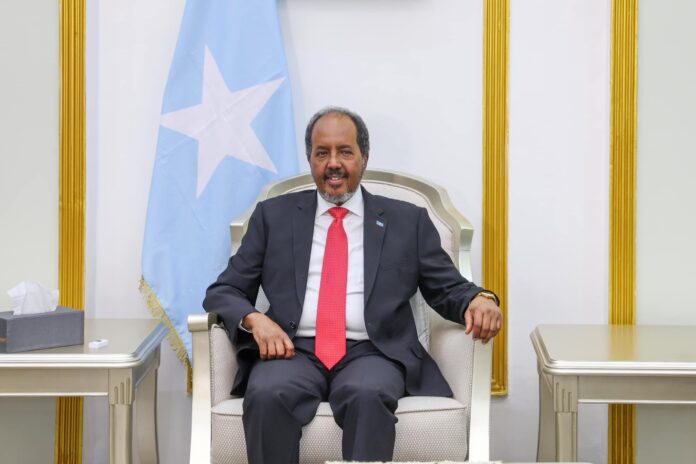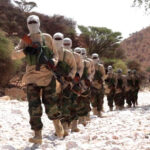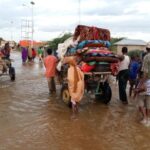MOGADISHU, Somalia — The National Consultative Council (NCC) meeting in Mogadishu entered its second day and it has become a pivotal arena for discussions on security and electoral reforms, driven by President Hassan Sheikh Mohamud.
The gathering, which includes key figures such as Prime Minister Hamza Abdi Barre, his deputy Salah Ahmed Jama, and leaders from Galmudug, South West, Hir Shabelle, and Banadir region, is navigating through significant national issues without the presence of two crucial regional leaders.
The absence of Jubbaland’s President Ahmed Madobe and Puntland’s leader has cast a shadow over the proceedings, spotlighting the deep-seated tensions within Somalia’s fragmented political fabric. President Madobe’s departure from the NCC was marked by his firm stance on maintaining indirect elections in Jubbaland, a position that directly opposes the federal government’s advocacy for direct, person-to-vote elections.
This disagreement underscores the ongoing struggle between federal control and regional autonomy, a theme that has historically complicated governance in Somalia.
Puntland’s continued boycott of NCC meetings adds another layer of complexity, as their absence not only affects the quorum but also the consensus-building process necessary for effective national decision-making. The regional leaders’ non-participation reflects broader issues of trust, power distribution, and the interpretation of federalism within Somalia.
Despite these challenges, the NCC is attempting to forge ahead, focusing on enhancing security measures, particularly in light of the planned transition from ATMIS to AUSSOM, and setting the stage for what many hope will be a more democratic electoral process. Discussions are also centered on strengthening federal and regional security strategies to combat threats like Al-Shabaab, demonstrating a concerted effort towards national stabilization.
The NCC is set to yield an outcome that significantly shapes Somalia’s political landscape, influencing not only how elections are conducted but also how power is shared between the federal government and regional states. The meeting’s success in bridging these divides will be crucial for Somalia’s path towards stability and democratic governance.






